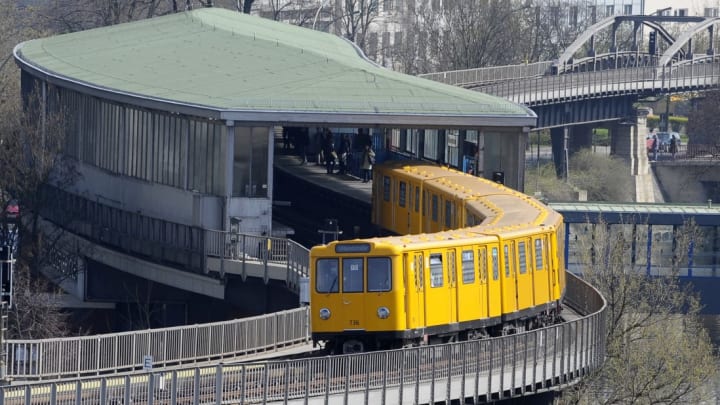Getting people out of their cars is an essential part of combating climate change. By one estimate, getting people to ditch their two-car household for just one car and a public transit commute could save up to 30 percent in carbon dioxide emissions [PDF]. But how do you convince commuters to take the train or the bus? In Germany, the answer may be making all public transit free, according to The Local.
According to a letter from three of Germany's government ministers to the European Union Environment Commissioner, in 2018, Germany will test free public transit in five western German cities, including Bonn. Germany has failed to meet EU air pollution limits for several years, and has been warned that it could face heavy fines if the country doesn't clean up its air. In a report from 2017, the European Environment Agency estimated that 80,767 premature deaths in Germany in 2014 were due to air pollution.
City officials in the regions where free transport will be tested say there may be some difficulty getting ahold of enough electric buses to support the increase in ridership, though, and their systems will likely need more trains and bus lines to make the plan work.
Germany isn't the first to test out free public transportation, though it may be the first to do it on a nation-wide level. The Estonian capital of Tallinn tried in 2013, with less-than-stellar results. Ridership didn't surge as high as expected—one study found that the elimination of fares only resulted in a 1.2 percent increase in demand for service. And that doesn't necessarily mean that those new riders were jumping out of their cars, since those who would otherwise bike or walk might take the opportunity to hop on the bus more often if they don't have to load a transit card.
Transportation isn't prohibitively expensive in Germany, and Germans already ride public transit at much higher rates than people do in the U.S. In Berlin, it costs about $4 a ride—more expensive than a ride in Paris or Madrid but about what you'd pay in Geneva, and cheaper than the lowest fare in London. And there are already discounts for kids, students, and the elderly. While that doesn't necessarily mean making public transit free isn't worth it, it does mean that eliminating fares might not make the huge dent in car emissions that the government hopes it will.
What could bring in more riders? Improving existing service. According to research on transportation ridership, doing things like improving waits and transfer times bring in far more new riders than reducing fares. As one study puts it, "This seldom happens, however, since transport managers often cannot resist the idea of reducing passenger fares even though the practice is known to have less impact on ridership."
The same study notes that increasing the prices of other modes of transit (say, making road tolls and parking fees higher to make driving the more expensive choice) is a more effective way of forcing people out of their cars and onto trains and buses. But that tends to be more unpopular than just giving people free bus passes.
[h/t The Local]
